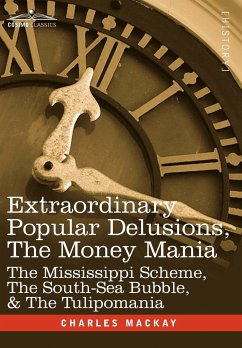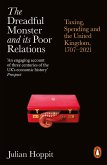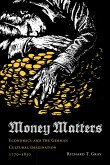The finances of the country were in a state of the utmost disorder. A profuse and corrupt monarch, whose profuseness and corruption were imitated by almost every functionary, from the highest to the lowest grade, had brought France to the verge of ruin. The national debt amounted to 3000 millions of livres, the revenue to 145 millions, and the expenses of government to 142 millions per annum: leaving only three millions to pay the interest upon 3000 millions. -from "The Mississippi Scheme" The savings-and-loan scandals of the 1980s. The dotcom craze of the 1990s. The housing bubble of the 2000s. It may seem as if mass financial insanity is a result of complex global economies and modern high finance, but it's been with us for centuries, as this classic expose of the madness of humanity-particularly as it relates to money-demonstrates in a way that's both disturbing and highly illuminating for those wishing to avoid getting lost in such madness again. This abridged edition of the 1841 classic focuses exclusively on the infamous financial mania that have become bywords when discussing the economic collapses of today: ¿ the Mississippi Scheme, in which an 18th-century Scottish financier created a stock bubble in France for land in the New World ¿ the South Sea bubble, the 18th-century stock swindle sometimes called "the Enron of England" ¿ the infamous tulip mania that seized Holland in the 1600s These powerful studies of the human relationship to money remain startlingly relevant today... as they are sure to still be centuries from now. Scottish journalist CHARLES MACKAY (1814-1889) held an honorary law degree from Glasgow University, as well as a doctorate in literature. A renowned poet and songwriter, he also authored a Dictionary of Lowland Scotch.
Hinweis: Dieser Artikel kann nur an eine deutsche Lieferadresse ausgeliefert werden.
Hinweis: Dieser Artikel kann nur an eine deutsche Lieferadresse ausgeliefert werden.








